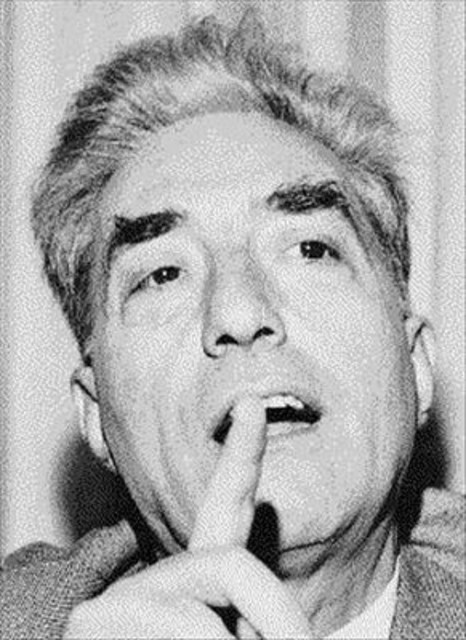[ad_1]
Luigi Dallapiccola, Half I, 2024
This Week in Classical Music: February 26, 2024. Missed dates and Luigi Dallapiccola. For the final three weeks, we’ve been preoccupied with Alban Berg, and we be ok with it: Berg was a revolutionary composer (not by his structure however by the character of his artistic expertise) and he must be celebrated, even when our time, philistine and woke, doesn’t go well with him nicely. The issue we’ve got is that we missed a number of very important anniversaries: for instance, George Frideric Handel‘s – he was born on February 23rd of 1685; additionally, probably the most fascinating German composers of the 16th century, Michael Praetorius, was born on February 15th of 1571. We missed the birthday of Francesco Cavalli, a vital composer within the historical past of opera, on February 14th of 1602. Two well-known Italians had been additionally born throughout these three weeks, Archangelo Corelli on February 17th of 1653 and Luigi Boccherini, on February 19th of 1743. Of our contemporaries, György Kurtág, probably the most vital composers of the late 20th century, celebrated his 98th (!) birthday on February 19th. After which this week, there are two massive dates: Frédéric Chopin’s anniversary is on March 1st (he was born in 1810) and Gioachino Rossini’s birthday will probably be celebrated on February 29th – he was born 232 years in the past, in 1792. We’ve written  about all these composers, about Handel and Chopin many occasions. As we speak, although, we’ll keep in mind an Italian whom we’ve talked about a number of occasions however solely alongside any individual else; his identify is Luigi Dallapiccola, and his story has a connection to Alban Berg.
about all these composers, about Handel and Chopin many occasions. As we speak, although, we’ll keep in mind an Italian whom we’ve talked about a number of occasions however solely alongside any individual else; his identify is Luigi Dallapiccola, and his story has a connection to Alban Berg.
Luigi Dallapiccola was born on February 3rd of 1904 within the principally Italian-populated city of Pisino, Istria, then a part of the Austrian Empire. Pisino was transferred to Italy after WWI, to Yugoslavia after WWII, as Pazin, and now could be a part of Croatia. The Austrians despatched the Dallapiccola household to Graz as subversives (Luigi, not having the ability to play the piano, loved the opera performances there); they returned to Pisino solely after the tip of the conflict. Luigi studied the piano in Trieste and in 1922 moved to Florence, the place he continued with piano research and composition, first privately after which on the conservatory. Throughout that point, he was a lot taken by the music of Debussy that he stopped composing for 3 years, making an attempt to soak up the affect. A really completely different affect was Schoenberg’s Pierrot Lunaire, which Luigi heard in 1924 at a live performance organized by Alfredo Casella (within the following years, Casella would change into a giant supporter and promoter of Dallapiccola’s music).
Upon commencement, Dallapiccola began giving recitals round Italy, later securing a place on the Florence Conservatory the place he taught for greater than 30 years, until 1967 (amongst his college students was Luciano Berio). In 1930 in Vienna, he heard Mahler’s First Symphony, which additionally affected him strongly: on the time, Mahler’s music was virtually unknown in Italy. Within the Nineteen Thirties, Dallapiccola’s life underwent main modifications. Musically, he turned extra influenced by the Second Viennese Faculty, and in 1934 bought to know Alban Berg (in 1942, whereas passing via Austria to a live performance in Switzerland, he met Anton Webern). The insurance policies of Italy additionally affected him drastically: first, he was taken by Mussolini’s rhetoric, brazenly changing into his supporter. This modified with the Abyssinian and Spanish wars, which Dallapiccola protested, after which rather more so when Mussolini, underneath strain from Hitler, adopted racial (for all sensible functions, antisemitic) insurance policies: Dallapiccola’s spouse, Laura Luzzatto, was Jewish. They married on Could 1, 1938; the racial legal guidelines had been adopted in November of that 12 months. Right here, from 1938, is the primary of the three Canti di Prigionia (Songs of Imprisonment), Preghiera di Maria Stuarda (A Prayer of Mary Stuart) written, partly, as a protest towards Mussolini’s racial legal guidelines. The New London Chamber Choir is performed by James Wooden, and the Ensemble Intercontemporain, by Hans Zender. We’ll proceed with the life and music of Luigi Dallapiccola subsequent week.
[ad_2]




